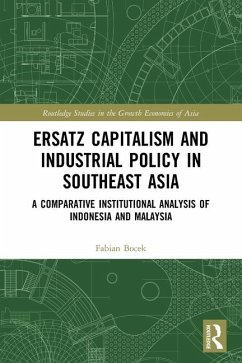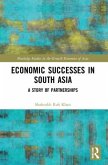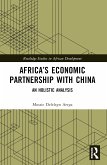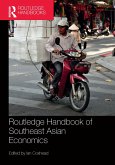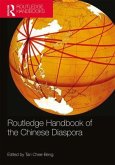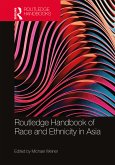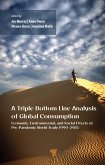This book applies and develops the concept of "ersatz capitalism" in the analysis of industrial policy blockades to economic development in Malaysia and Indonesia.
Drawing on insights from international political economy, development studies, industrial and innovation policy, and new institutionalism to refer to a specific type of capitalism, the book analyzes different paths and institutions of economic development within the entire East Asian region. Comprehensive theoretical insights are complemented by empirical case studies that relate to country and sectoral studies - the automotive and ICT industries - in Malaysia and Indonesia. Applying contemporary research on international political economy to refer to a specific type of capitalism, the author examines how conflicts of interest between factions of state apparatus, associations, and companies contribute to the failure of developmental policies.
The unique combination of theory formation and empirical analysis provides a novel approach to international comparative research on capitalism. The book will be of interest to researchers in the fields of international political economy, development studies, new institutionalism, East Asian and Southeast Asian studies, and industrial and innovation policy.
Drawing on insights from international political economy, development studies, industrial and innovation policy, and new institutionalism to refer to a specific type of capitalism, the book analyzes different paths and institutions of economic development within the entire East Asian region. Comprehensive theoretical insights are complemented by empirical case studies that relate to country and sectoral studies - the automotive and ICT industries - in Malaysia and Indonesia. Applying contemporary research on international political economy to refer to a specific type of capitalism, the author examines how conflicts of interest between factions of state apparatus, associations, and companies contribute to the failure of developmental policies.
The unique combination of theory formation and empirical analysis provides a novel approach to international comparative research on capitalism. The book will be of interest to researchers in the fields of international political economy, development studies, new institutionalism, East Asian and Southeast Asian studies, and industrial and innovation policy.

